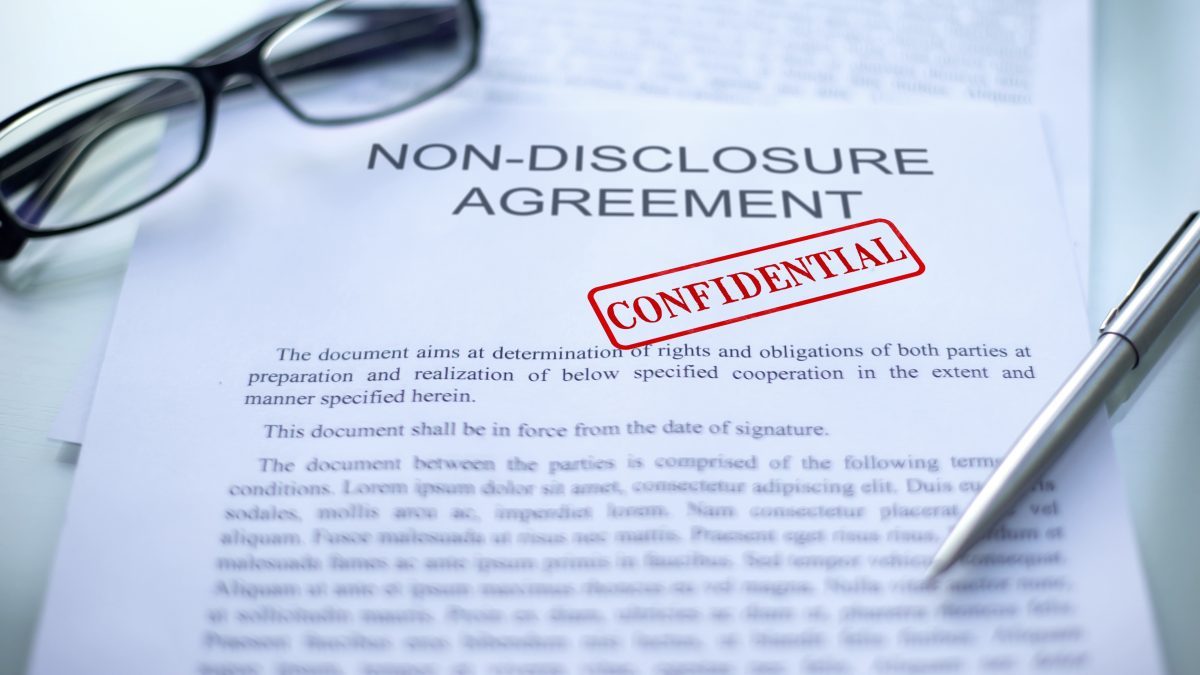By Evan Crook, Esq.
When considering the separation of an employee, whether by virtue of layoff, discipline or otherwise, an employer’s primary concern is finality. You want the matter to be over. Finality necessarily includes ensuring that the separated employee does not make any statements or take any actions that would adversely affect the employer’s operations, interests and reputation after a separation agreement has been reached. A government employer’s interests in this regard could be said to be even higher, as it is charged with upholding and preserving the Law. As a result, it has been a largely universal practice in the Government Employment Law world that employee separation agreements contain Confidentiality/Non-Disclosure and Non-Disparagement clauses.
You may have seen the media coverage and hoopla pertaining to a recent decision by the National Labor Relations Board (“NLRB”), McLaren Macomb (Case: 07-CA-263041), in which the NLRB ruled that employers may not offer employees a severance agreement that contains a Non-Disparagement clause. The NLRB went so far as to find that the mere offering of a Non-Disparagement provision to an employee violates certain sections of the National Labor Relations Act (“NLRA”). The good news for our public employer clients is that the NLRA and decisions by the NLRB do not apply to state or local government employees. 29 U.S.C. Section 152(2). Thus, the McLaren Macomb decision is not applicable to you as a state or local government employer.
However, a 2019 amendment to the New Jersey Law Against Discrimination (“NJLAD”) which limits the scope of Confidentiality and Non-Disclosure provisions in employment agreements (N.J.S.A. 10:12.8), as well as pending proposed amendments to that statute relating to Non-Disparagement clauses are worth reviewing for the benefit of our governmental clients.
Confidentiality/Non-Disclosure Clauses.
Confidentiality/Non-Disclosure clauses have been a mainstay of employee separation agreements for government employees for a long time. However, the NJLAD was amended in March of 2019 as follows:
A provision in any employment contract or settlement agreement which has the purpose or effect of concealing the details relating to a claim of discrimination, retaliation, or harassment (hereinafter referred to as a “non-disclosure provision”) shall be deemed against public policy and unenforceable against a current or former employee (hereinafter referred to as an “employee”) who is a party to the contract or settlement. If the employee publicly reveals sufficient details of the claim so that the employer is reasonably identifiable, then the non-disclosure provision shall also be unenforceable against the employer. N.J.S.A. 10:12.8(a). Emphasis added.
It should be noted that this 2019 amendment was prospective only and does not apply to agreements entered into prior to the effective date of that Act, March 18, 2019. Going forward from that date, New Jersey employers still can include Confidentiality/Non-Disclosure clauses within their separation agreements; BUT, the clause should include language that clarifies that the provision does not prohibit the disclosure of “details of a claim of discrimination, retaliation or harassment.” Further, the statute requires:
Every settlement agreement resolving a discrimination, retaliation, or harassment claim by an employee against an employer shall include a bold, prominently placed notice that although the parties may have agreed to keep the settlement and underlying facts confidential, such a provision in an agreement is unenforceable against the employer if the employee publicly reveals sufficient details of the claim so that the employer is reasonably identifiable. N.J.S.A. 10:12-8(b).
Thus, the requisite notice must be included in all separation agreements involving discrimination, retaliation or harassment claims.
Further, good practice dictates that a Confidentiality/Non-Disclosure clause should also include language recognizing other reasons disclosure would be permitted, such as, responding to an Open Public Records Act (OPRA) request, pursuant to a Court Order or as otherwise required by Law.
Non-Disparagement Clauses.
Non-Disparagement clauses have also been a mainstay of employee separation agreements for government employees for a long time. The legality of such provisions was challenged in the matter, Savage v. Township of Neptune, 472 N.J. Super 291 (App. Div. 2022). In that case, an employee sued the township alleging, discrimination, harassment and retaliation under NJLAD. The parties entered into a Settlement Agreement which included a Non-Disparagement clause by which the parties agreed to, “… not make any statements written or verbal, or cause or encourage others to make any statements, written or verbal regarding the past behavior of the parties, which statements would tend to disparage or impugn the reputation of any party.” Shortly after the agreement was executed, the employee conducted an interview with a TV news reporter giving details relating to the NJLAD claim. The Township filed a Motion to Enforce Settlement arguing the plaintiff had violated the Non-Disparagement provision during that interview. The employee’s defense was that the Non-Disparagement provision was unenforceable against public policy pursuant to N.J.S.A. 10:5–12.8(a). The Court granted the Township’s Motion finding that, “… the purpose of the Non-Disparagement provision was to mutually prohibit the parties from making disparaging comments about each other, and not to conceal the details relating to the plaintiff’s LAD claims, in violation of N.J.S.A. 10:5–12.8”, and therefore the Non-Disparagement clause was enforceable. Thus, at the present time Non-Disparagement clauses that are drafted carefully so as not to “conceal the details” relating to an LAD claim are still legally enforceable in New Jersey.
However, the story is not over. In response to the Savage decision, Legislation has been introduced which would amend N.J.S.A 10:12.8 to include non-disparagement provisions as being against public policy and unenforceable. (NJ Assembly Bill A4521 and corresponding NJ Senate Bill S2930.) A4521 was passed by the Assembly and referred to the Senate Labor Committee. Our office is continuing to track the status of the proposed Legislation and will advise as to any future developments in this critical area of Employment Law.
The moral of the story is that New Jersey Government employers should be careful to make sure that any Confidentiality/Non-Disclosure or Non-Disparagement Clauses to be included in employee separation agreements are carefully crafted to avoid falling afoul of N.J.S.A. 10:12.8. If you have questions, please reach out to Evan Crook at ecrook@malamutlaw.com.
The content of this post should not be construed as legal advice. You should consult a lawyer concerning your specific situation and any specific legal question you may have.



